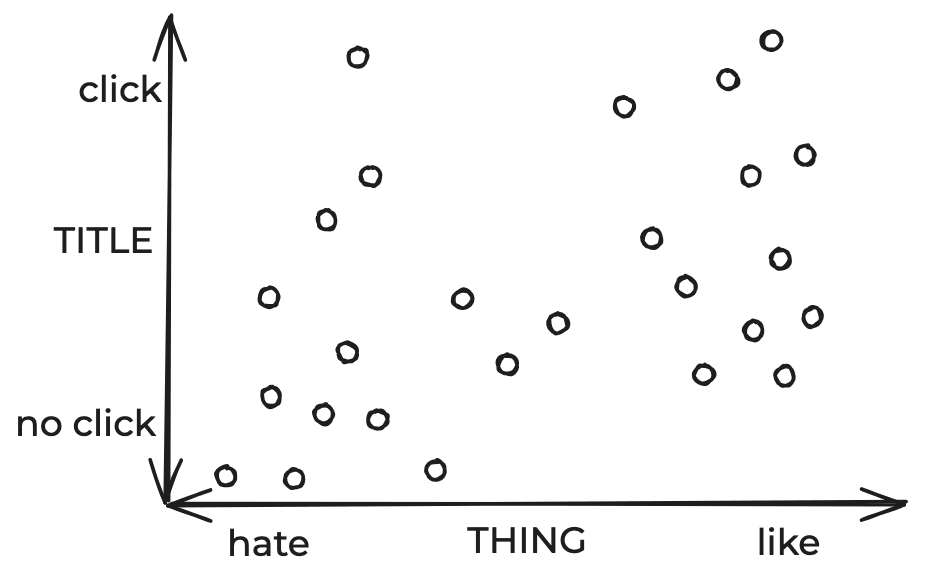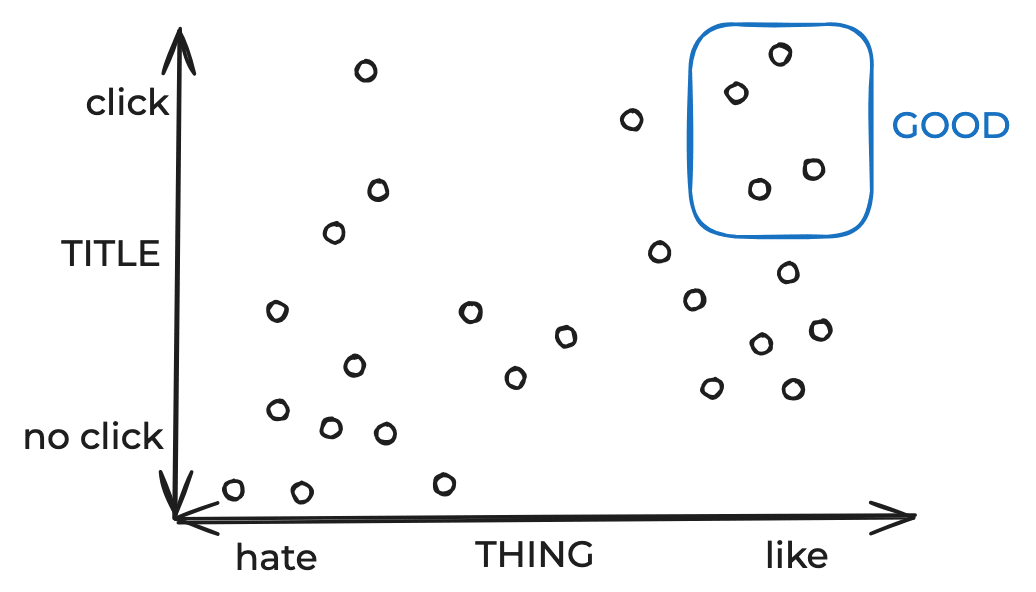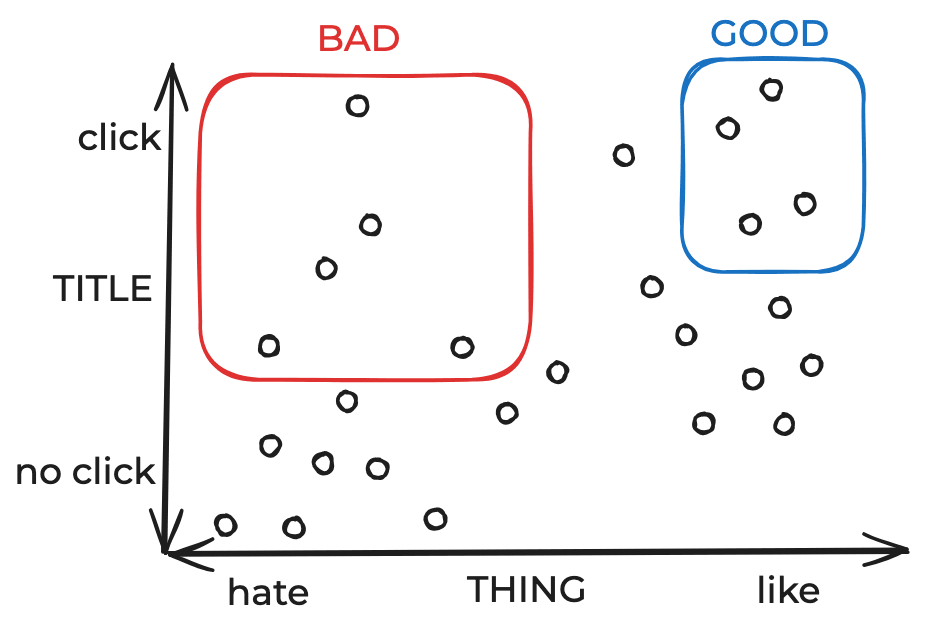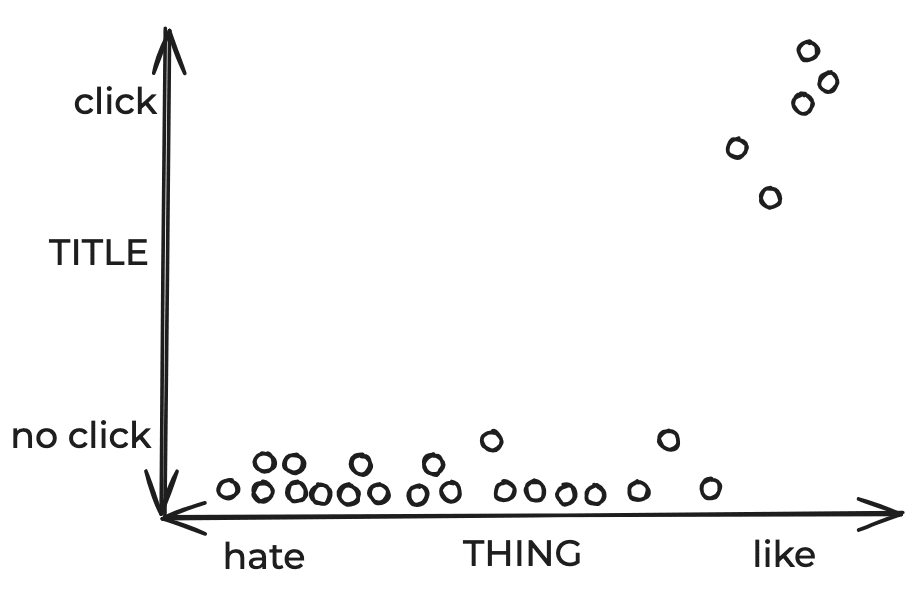How to title your blog post or whatever
7β-redex
3tcheasdfjkl
4β-redex
7tcheasdfjkl
12β-redex
2silentbob
New Comment
I'm worried about Chicago
In what world is this a good title? It basically gives zero information about the topic of the article, it is exactly the kind of clickbait title that purposefully omits any relevant information from the title to try to make people click. I personally associate such clickbait titles with terrible content, and they make me much less likely to click.[1]
What would be wrong with just using the subtitle as the actual title? It's much more informative:
Slowing national population growth plus remote work spell big trouble for Midwestern cities
Unfortunately various platforms actively push authors towards clickbait titles, and even if the author dislikes them they often don't have a choice. Often good content is actually hiding behind terrible clickbait titles (and thumbnails) nowadays, so I sometimes have to make an active effort to click on clickbait because otherwise I could be missing out on discovering some good content. ↩︎
Using that subtitle as the title would make it work worse for me because:
- that title would be too long. many of the interfaces that show me titles would simply cut it off and I would not see the back half of it
- that sentence is semantically dense and grammatically complicated. I have to put in some work to break it down into noun phrases and such and figure out how it fits together. requiring cognitive work of potential readers before they've even decided if they want to read your thing is extremely anti-memetic
- the tone of it sounds like a dry academic paper. those are typically not very fun to read. it signals that this will also not be fun to read
Whereas the actual title has none of those problems. It's short, it's easy to parse, it's conversational with a clear and compelling valence. It's true it does not already explain why the author is worried about Chicago, but I think that's fine - when the explanation is complex enough you should need click on the article to find it out. Clickbait is when the answer could easily fit into the title and the author chose not to do that. Here I don't think it can.
that sentence is semantically dense and grammatically complicated. I have to put in some work to break it down into noun phrases and such and figure out how it fits together. requiring cognitive work of potential readers before they've even decided if they want to read your thing is extremely anti-memetic
Sorry, but I call bullshit on this being a problem for you, or any other LW reader.
Now you are probably right that if you take the general population, for a significant number of people parsing anything but the simplest grammatical structures is going to impart noticeable extra cognitive load, lowering overall memetic fitness.
But as the post outlined, we are not optimizing for the number clicks, we are optimizing for something like P(loves article|clicked). See also https://www.lesswrong.com/posts/vidXh2DJtnqH5ysrZ/a-blog-post-is-a-very-long-and-complex-search-query-to-find
So if you are worried about someone bouncing off the title because of its grammatical complexity, you better also write the article with simple grammar (and simple content). Are there situations where your main goal is to reach as many people as possible? Sure, but for that you probably want to optimize both the title and content with that in mind. And at this point what you are doing is probably more like "political communication" than "writing something for like-minded people".
the tone of it sounds like a dry academic paper. those are typically not very fun to read. it signals that this will also not be fun to read
For me it signals more positive things like seriousness and better epistemics[1], but you probably have a point that there is space to signal the tone of the article in the title. Still, I don't think reducing its information density is the right way to do it.
Well, on blog posts at least. On actual academic papers everyone is expected to write in a serious sounding academic style, so there is much less signal there. ↩︎
Sorry, but I call bullshit on this being a problem for you, or any other LW reader.
What? I am telling you it is. Not in the sense that I can't parse it, but in the sense that I notice the cognitive effort involved, and preferentially read things that take less cognitive effort (all else equal, of course). If I'm skimming a bunch of titles and trying to pick which thing to read, the difference between titles that lodge their meaning into my brain as soon as my eyes fall on them vs. titles that take an extra couple seconds to parse is going to matter. (Similarly, I prefer Cooking For Engineers recipe layouts to recipe blogs that require me to extract the instructions from longer-form text - not that I can't do that, but I don't prefer to.)
Maybe this means you don't want me to read your post! But I don't think that's right. Titles are usually the most optimized-for-memeticness part of a post; I typically assume that the rest of it will be denser, and that's fine - if I'm reading your post I am probably sold on being interested in what you're saying. (Still better all things equal to make stuff easier to parse, when that doesn't trade off against other desiderata.)
What? I am telling you it is.
and preferentially read things that take less cognitive effort (all else equal, of course)
Sorry, no offense meant, I am just genuinely surprised. But I believe you now, I guess our experiences are just very different in this regard.
It’s sad to admit, but I think there are many good things that simply don’t have good titles.
I've been thinking for many years that bad titles are a common reason for failure, say of movies or video games or other things that are sold where superficial first impressions are important. In the sense of: there are some products out there that would have been orders of magnitude less or more successful, had they gone with a different name.
This seems particularly important to me for anything that has a "viral" element, where people tell their friends about it. A good title most definitely affects the "reproduction number" to some degree. If it sounds cool people may easily be 50% more likely to speak about it than if the name is cringe or confusing or hard to remember or hard to pronounce. If this moves your R from 0.9 to 1.4, that can obviously make a tremendous difference for the trajectory of the thing.




